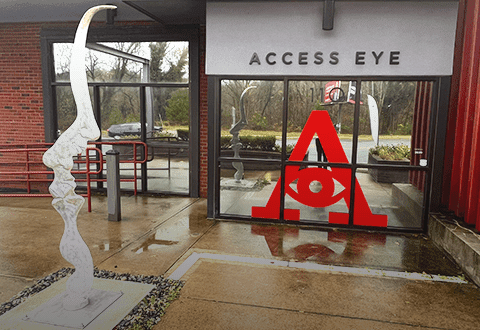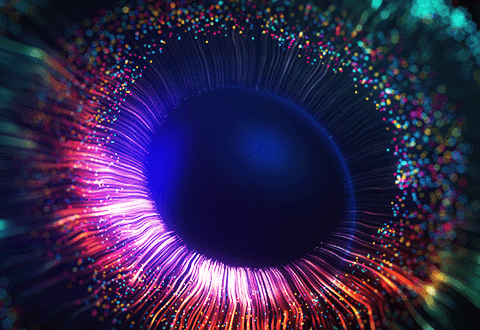How Your Eyes Change with Age, and When to See an Eye Doctor

Vision changes can be a normal part of aging but may also be a warning sign of a severe eye disease or condition. The risk of eye diseases increases with age, with cataracts, age-related macular degeneration, diabetic retinopathy, and glaucoma being the worst offenders. However, the blurry near vision starting around age 40 is expected and harmless (albeit frustrating). Annual eye exams with our eye doctors at Access Eye can help you maintain your vision and eye health as you get older.
Presbyopia
Presbyopia is why most adults in their late forties and older require reading glasses. The natural eye lens is flexible but hardens with age, making it difficult to adjust and accommodate clear vision for nearby objects.
Dry Eyes
The risk of dry eyes goes up with your age, with people 40 and older more at risk. That is because your eyes create fewer tears, and the tear quality decreases over time. Ptosis of the upper eyelid (eyelid drooping) may also cause dry eye symptoms and obstruct vision.
Pupil Size
Your pupil size changes with age because the muscles controlling the pupil’s reaction to light weaken, making it difficult for your vision to adjust in poor lighting. The pupils may appear smaller than normal, and aging people may see halos around lights and have difficulty reading and using devices in dim environments.
Decreased Color Vision
You may have difficulty distinguishing between like colors, such as blue from black or brown. Decreased color vision may be linked to reduced pupil size but can also be caused by changes in the lens (cataract) or another eye disease, such as macular degeneration.
Watery Eyes
Some older adults may experience watery eyes or leaking tears, especially in windy environments or when temperatures or light changes. Leaking tears may be a normal part of aging or caused by dry eye disease, an infection, or a blocked tear duct.
Some eye changes can be corrected with readers or high-contrast eyeglasses, while others require ophthalmic care and lifestyle modifications. See an eye doctor for regular eye exams and whenever your vision changes to rule out eye diseases. Certain eye diseases cause irreversible vision loss; identifying them early on is the only way to save your eyesight.
Annual Eye Exams for People 50 and Older
Annual eye exams with our optometrists can find eye diseases early and protect your vision. It is recommended everyone over 50 have a dilated eye exam every year, even if they don’t wear glasses or contact lenses. These visits are especially vital for people with high blood pressure and diabetes because they can cause retinal damage.
You may need annual eye exams earlier in life if you have a family history of certain eye diseases. People wearing corrective eyewear should have yearly appointments to update their prescriptions regardless of age because even minor vision changes can increase your risk of an injury or fall.
See an eye doctor immediately if you experience these symptoms:
- Sudden vision changes
- Increased floaters, cobwebs, or specks in your vision
- Light flashes
- Quick onset of eye pain
- Double vision
- Eyelid swelling or red eyes
Schedule an Annual Eye Exam at Access Eye
Our optometrists can help you preserve your vision and maintain healthy eyes with annual eye exams. Schedule your appointment online or call (540) 371-2020. We have five locations throughout Virginia, including Falmouth, Plank Road, Parkway, Aquia, King George, and Fredericksburg.
















